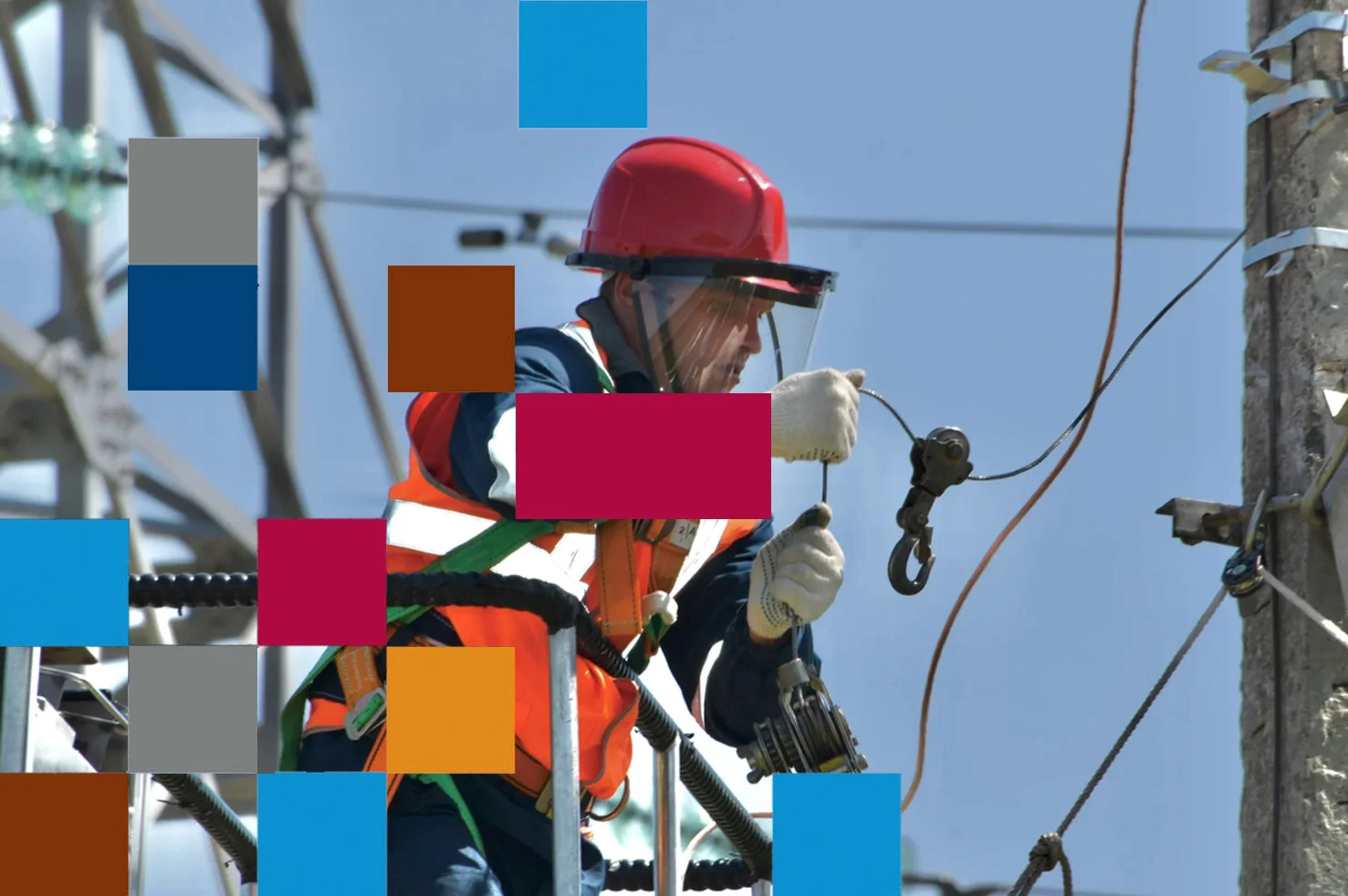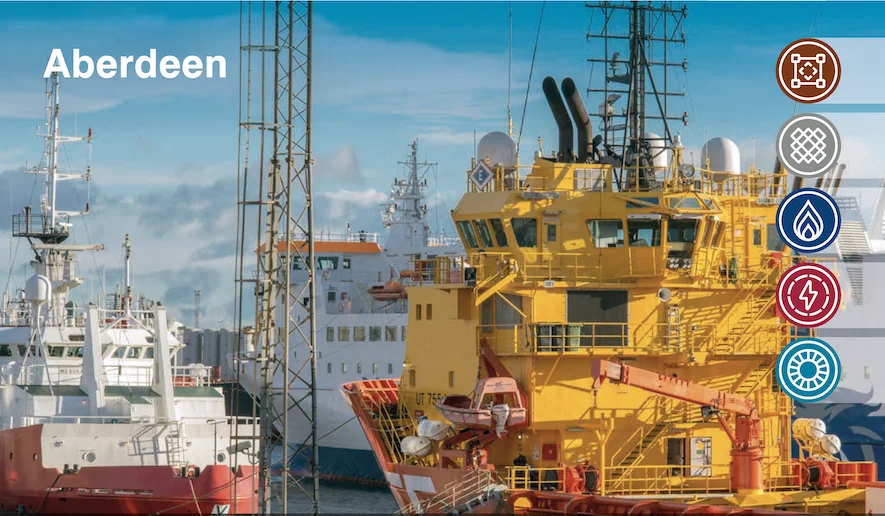
Midstream Recruitment: Solving The Pipeline Talent Gap
03 Jun, 20257 Minutes
Midstream oil and gas companies are facing growing pressure to secure skilled professionals, but the right talent is getting harder to find.
As infrastructure ages and regulations tighten, demand for pipeline, logistics, and compliance expertise is rising - yet traditional oil and gas recruitment approaches aren’t keeping up. Fewer experienced candidates are available, and many are being drawn into competing sectors like renewables and construction.
In this blog, we explore why midstream hiring has become more difficult, where the biggest gaps lie, and how oil and gas recruitment agencies and offshore recruitment firms can help companies stay ahead.
Where Are the Biggest Talent Shortages?
Midstream operations rely on a mix of technical, logistical, and compliance expertise, but demand is now outpacing supply. Recruitment teams and oil and gas staffing firms are reporting increased difficulty in securing qualified candidates across several critical areas.
The three roles causing the biggest recruitment pressure include:
Pipeline engineers
These professionals are essential for both new construction and maintaining ageing infrastructure. Skills in demand include:
- Pipeline design and build under modern safety standards
- Integrity monitoring and leak prevention
- Corrosion control and long-term maintenance
The number of experienced candidates is shrinking fast, and few graduates have the hands-on knowledge to step in. Delays in hiring can slow down projects and increase compliance risk.
Logistics and supply chain specialists
As midstream operations grow more global, logistics roles have become more complex. Employers now need professionals who can manage:
- Multi-modal transport and real-time tracking systems
- Cross-border compliance and customs processes
- Operational planning under volatile market conditions
These skills are highly transferable, so competition from infrastructure, tech and manufacturing sectors is fierce. Many qualified candidates are hired before they ever enter the active job market, making midstream recruitment a race against time.
HSE and compliance professionals
Tightening regulation across local and global frameworks has increased the demand for safety and compliance specialists who can handle:
- Environmental and pipeline safety standards
- Incident reporting and audit preparation
- Legal documentation and public accountability
These roles are increasingly difficult to fill, especially as energy professionals shift into renewables or consultancy. Without this expertise, midstream companies risk fines, project delays, and reputational damage.
This shortage of specialised talent is one of the biggest challenges facing oil and gas recruitment agencies working in the midstream space. Without targeted support and long-term planning, these gaps will only widen.

Why Midstream Companies Struggle to Attract Talent
Hiring for midstream roles requires a different approach. While upstream and downstream often dominate industry conversations, midstream is less visible, and that affects how candidates view it as a career path. At the same time, competition for transferable skills has increased, and expectations from jobseekers have shifted.
Lower visibility of midstream careers
Midstream plays a vital role in energy delivery, but it often doesn’t receive the recognition it deserves. Jobseekers are more familiar with exploration or trading roles, which are often portrayed as more dynamic.
This lower profile can limit interest from candidates, especially those entering the industry for the first time. Many professionals are unaware of the career opportunities midstream offers, which creates an additional challenge for oil and gas recruitment agencies promoting these positions.
Transferable skills, wider demand
The technical, compliance, and logistics expertise developed in midstream is in high demand across multiple sectors. Infrastructure, renewables, and advanced manufacturing projects all compete for similar skill sets. Without clear differentiation, midstream companies risk losing qualified candidates to other industries.
Oil and gas recruitment firms are having to work harder to position these roles competitively, particularly at a time when many sectors are offering more visible innovation or sustainability credentials.
Challenging working environments
Midstream roles often involve site-based work, travel requirements, or shift patterns that don’t align with the flexibility many professionals now expect. This can deter applicants who prioritise hybrid or remote working. In some cases, strong candidates withdraw once they understand the travel demands.
Lessons from offshore recruitment show that setting expectations early and communicating benefits clearly can help address this, but many midstream employers aren’t yet doing so.
Unclear progression or benefits
Candidates expect more than a job title. They want to understand salary bands, development opportunities, and what support is in place to grow long-term. When this isn’t presented clearly, it’s easy for applicants to choose a competitor with a stronger employer brand.
Recruitment teams and oil and gas staffing specialists must help employers present a comprehensive picture, encompassing structured career paths, training, support, and retention efforts.
Midstream roles offer long-term stability, technical complexity, and industry impact—but only if they’re framed clearly. Companies that recognise and address these specific challenges will be far better placed to secure the people they need.
Strategies for Securing Midstream Talent
Midstream hiring is under pressure. Roles are more complex, timelines are tighter, and the people with the right skills are harder to reach. The companies getting it right are planning earlier, recruiting smarter, and adapting to how the market has changed.
1. Plan your workforce early
Across oil and gas, nearly half the workforce is over 45. In the UK alone, 43% of the offshore workers in 2020 were already above that age bracket, a trend that has been increasing in the years previous. That’s not a future issue. It’s a current risk. If midstream operators don’t map out which teams are ageing out, and where replacement gaps will hit first, they’ll lose skills and experience with no one ready to take over.
- Identify risks by site, team and project cycle
- Start building talent pipelines up to 12 months ahead
- Support internal promotions with targeted training and mentoring
It’s not about predicting the future. It’s about protecting operations now.
2. Use specialist recruiters who know the sector
It takes over 11 weeks on average to fill a role in oil and gas. However, that figure obscures the reality for midstream: roles such as pipeline integrity or logistics compliance are more challenging to source, especially at short notice. Working with recruiters who already understand the space cuts down lead time and gives you a better shortlist from day one.
- Access midstream candidates who aren’t applying anywhere else
- Reduce internal time spent screening or re-advertising
- Rely on people who know project pressures and certification requirements
Faster hiring isn’t just convenient. It keeps schedules on track and teams working safely.
3. Be clear about what you offer
A job ad alone won’t cut it. Today’s candidates want to know what they’re walking into. If roles don’t offer transparency on pay, progression or flexibility, strong candidates will look elsewhere — often before your first interview is even booked.
- Include salary bands and training routes in job specs
- Make career progression part of onboarding and retention, not just recruitment
- Communicate flexibility where possible, even in site-based work
Candidates still value long-term stability — but only when they can see it.
4. Use flexible hiring models to stay agile
Midstream hiring needs to scale with the project cycle. A static team won’t always meet the demands of peak maintenance, environmental audits, or new infrastructure. Contracting, international mobilisation, and short-term support all have a role to play.
- Build a core team, then expand around key project phases
- Keep in touch with offshore and on-call specialists for fast access
- Use fixed-term contracts to cover seasonal surges or specialist compliance needs
Flexible models enable teams to adapt without compromising quality or overloading permanent staff.

Final Thoughts on Midstream Recruitment Challenges
Midstream recruitment has become more complex. Ageing workforces, tougher regulation, and rising competition from other sectors are making it harder to hire the people you need. Roles in pipeline engineering, logistics, and compliance are among the hardest to fill, yet they’re essential for safe, efficient operations.
Companies relying on short-term fixes are starting to feel the strain. Delays, skills gaps, and increased costs are now common across the sector. On the other hand, businesses investing in better workforce planning and working with specialist oil and gas recruitment agencies are staying ahead.
This is not about changing everything overnight. It’s about taking action early. Stronger employer branding, a clearer hiring strategy, and the right recruitment partnerships can make a real difference.
The oil and gas workforce is changing. Midstream companies that adapt now will be the ones that stay competitive.
Need Support with Midstream Recruitment?
If you are struggling to fill pipeline, logistics, or HSE roles, or want advice on how to improve your hiring strategy, Orion can help.
We work with midstream operators across the UK and internationally, supporting both permanent hiring and flexible offshore recruitment needs. Our oil and gas recruitment specialists understand the sector, the pressure points, and the candidate market.
Speak to the team today and start securing the talent your business needs.


